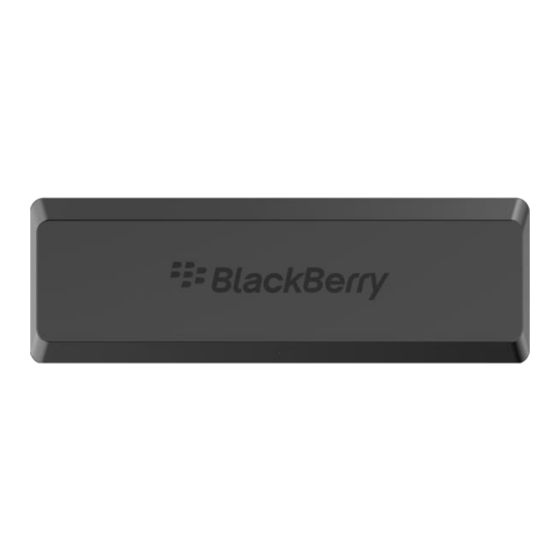Blackberry RADAR-M ITA100-1 Panduan Instalasi - Halaman 4
Jelajahi secara online atau unduh pdf Panduan Instalasi untuk Radar Blackberry RADAR-M ITA100-1. Blackberry RADAR-M ITA100-1 39 halaman. Container, dry van, insulated trailers barn doors
Juga untuk Blackberry RADAR-M ITA100-1: Panduan Instalasi (27 halaman), Panduan Instalasi (36 halaman)

4
BLACKBERRY RADAR ITA100-1 CHASSIS BRACKET INSTALLATION GUIDE
2 Get ready for installation
To get ready for installation, you need to obtain a worksheet where you can record the
pairing of each Radar module to its asset (that is, the trailer/container that the module will
be installed on).
In this section you will:
Add all assets you need to track to the Dashboard application user interface (UI)
•
Download the installation worksheet
•
2.1 Prerequisites
To perform the tasks in this section, you must
Have a computer with internet access
•
Have an account to the BlackBerry Radar Dashboard with admin privilege
•
2.2 Add available assets to the application
You can add all the assets you need to track by uploading a CSV file that contains the
information about the assets.
2.2.1 Create a CSV file
CSV stands for comma-separated values. A CSV file is a text file that contains information
structured in tabular form. If you have an Excel spreadsheet that contains all the assets as
well as the required information about the assets (see list below), you can create a CSV file
simply by saving your Excel file as Comma Separated Values (CSV).
It's important to note that your CSV file must contain all the information required for each
asset. This means that you must include the following columns in your CSV, and that each
column must contain the required information, as detailed below.
Asset ID
•
Asset type
•
Door type
•
Roof type
•
Trailer type
•
ISO container type
•
Length of asset
•
Width of asset
•
Height of asset
•
You can give the columns any names in your CSV file, but the column names must be in the
first row and separated by commas (or another delimiter that you decide to use).
